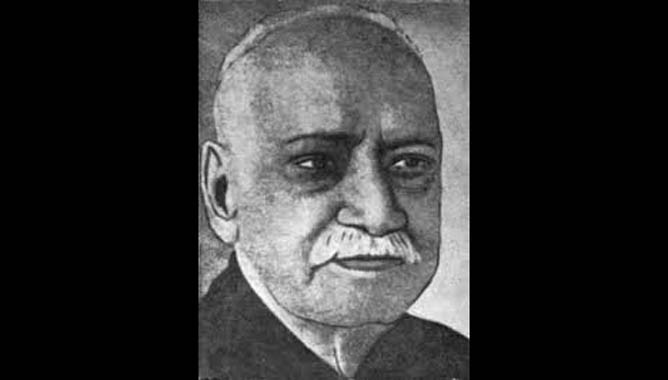

Highly contentious, controversial and alleged to have introduced a communal cleavage in the writing of Indian history is an apt description of historian Jadunath Sarkar (1870-1958) for the previous generation of South Asian hitorians. For some of his ideas and thoughts he incurred the damnation of many historians to which a reference will be made in the latter part of this column.
The point that needs to be underscored here is the little acquaintance of the contemporary generation of students of history with such an important historian of the twentieth century. A large majority of the youngsters studying history have almost dumped him altogether as if he never existed.
This attitude points towards our utter disregard for Medieval History. In these inhospitable environments for medieval Indian history, Chicago-based historian Dipesh Chakrabarty’s book The Calling of History: Sir Jadunath Sarkar & His Empire of Truth (published in 2015) has served well in bringing the spotlight back to that prolific historian of Mughal India.
This column is not meant to review Chakrabarty’s book but I must acknowledge that it has inspired me to reflect on some of the dimensions of Sarkar’s personality and scholarship, despite its tenor which is basically an apologia for Sarkar. These lines in fact signify an attempt to bring Sarkar back to the historical memory of the young historians of Pakistan in a bid to reanimate their interest in Medieval History and the historians of that era. Controversial and contentious he certainly was, but some of the aspects of his personality and scholarship are undoubtedly awe-inspiring. Now we turn to narrating his life-sketch so that the huge corpus of historical work that he churned out can be placed in a proper perspective.
Jadunath Sarkar was born on December 10, 1870 in Karchamaria village of Natore district, in an Eastern Bengali Kaisth family. That was the time when the Bengal renaissance had begun to unfold with somewhat wider implications. His father Rajkumar Sarkar was a zamindar and profoundly influenced by Brahmo-Samaj, a reform movement epitomising Raja Rammohan Roy’s ideas, calling for change. Jadunath was not avowedly drawn to Brahmo Samaj but its influence on his intellectual upbringing can hardly be ruled out.
Chakrabarty notes in The Calling of History that "Sarkar had been seriously influenced by his father, who combined a love of Vaishnava devotional literature with a deep respect for nineteenth-century Brahmo reformers Hinduism and kept in touch with their leaders, Devendranath Tagore and Keshab Chandra Sen". This statement sums up well the cumulative influence, shaping Jadunath’s intellectual trajectory within the larger milieu of Bengal.
Being a Hindu and hailing from a Bengali kaisth clan, Jadunath’s enrolment in school may not surprise many. It was in 1891 that he passed BA with honours in English and History from Presidency College, Calcutta. Next year, he secured First Class-First in M. in English from Calcutta University. For his brilliant academic achievements he received the Premchand-Roychand Scholarship at the Calcutta University in 1898. It was a fellowship named after a Gujarati merchant who suddenly amassed a large fortune during the cotton boom of 1866 and spent much of it on various charities.
Read also: Sarkar of history -- II
That fellowship encouraged him to invest his energy and penchant in the writing of The India of Aurangzeb which was published in 1901. He started his teaching career in 1893 from Ripon College Calcutta as a teacher in English. After five years, he joined the Provincial Education Service and was posted at Presidency College, Calcutta. He switched to history when he got a teaching position at the History Department of Banaras Hindu University.
He was nominated to the Indian Educational Service in 1918 and came to join Ravenshaw College at Cuttack in Orissa. He was appointed Vice Chancellor of Calcutta University in 1926 after his retirement from the Indian Educational Service. He was offered a second term in 1928, which he refused, quite unusual for this day and age. He, in fact, wanted to concentrate entirely on research in History. Contrary to the perception associated with him in Pakistan as a staunch Hindu nationalist, Jadunath was actually a nineteenth-century Victorian with puritanical habits.
According to the historian Niharranjan Ray, Jadunath’s ideals had been shaped by "the classical and historical outlook and prose of Gibbon, Mommsen, Macaulay and Trevelyan, and by the encyclopedic ideals of liberal humanism". Besides, his expertise in Persian language was exceptional which he put to optimum use while writing monumental works like The Fall of the Mughal Empire (in 4 volumes), History of Aurangzeb and The House of Shivaji. Chakrabarty provides a detailed bibliography of his works according to which, he produced "4 books and 158 essays and addresses in Bengali and about 17 books -- some of them with multiple volumes -- and 260 essays in English, plus some 110 essays and addresses he published in newspapers and magazines."
In addition to these, he translated and published documents from Persian and French, edited volumes of documents that he edited on his own or in collaboration with others, and wrote numerous forewords to books written in a variety of languages. This is ample testimony of his being the most prolific of historians in 20th century India.
Jadunath Sarkar was knighted in 1929 and was the first Indian historian ever to have been elected in 1952 as an Honorary Foreign Member of the American Historical Association. He was also elected an honorary member of the Royal Asiatic Society of Great Britain and Ireland in 1923 and an honorary corresponding member of the Royal Historical Society of England in 1935.
(to be continued)